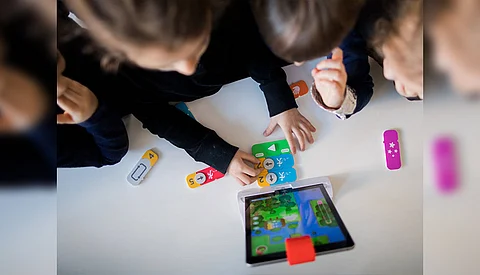

All of the hours and days looking at tablets and laptops may be having a negative impact on young people's eyesight, researchers report.
Working and studying at home during the Covid-19 lockdowns meant many of us spent a lot more time in front of screens.
However, all of the hours and days looking at tablets and laptops may be having a negative impact on young people's eyesight.
MORE LIKE THIS…
Researchers and eye health experts from Singapore, Australia, China, and the UK have examined more than 3,000 studies investigating smart device exposure and myopia in children and young adults aged between three months and 33 years old. Accordingly, they found that high levels of smart device screen time, such as looking at a mobile phone, is associated with around a 30 per cent higher risk of myopia, or short-sightedness, and, when combined with excessive computer use, that risk rose to around 80 per cent.
The findings come as millions of children around the world have spent "substantial time" using remote learning methods following the closure of schools as a result of the coronavirus pandemic.
"Around half the global population is expected to have myopia by 2050, so it is a health concern that is escalating quickly. Our study is the most comprehensive yet on this issue and shows a potential link between screen time and myopia in young people," said Professor Rupert Bourne of Anglia Ruskin University.
MORE LIKE THIS…
"This research comes at a time when our children have been spending more time than ever looking at screens for long periods, due to school closures, and it is clear that urgent research is needed to further understand how exposure to digital devices can affect our eyes and vision. We also know that people underestimate their own screen time, so future studies should use objective measures to capture this information."
Full results have been published this week in ‘The Lancet Digital Health’.
(Cover Media/Reuters)